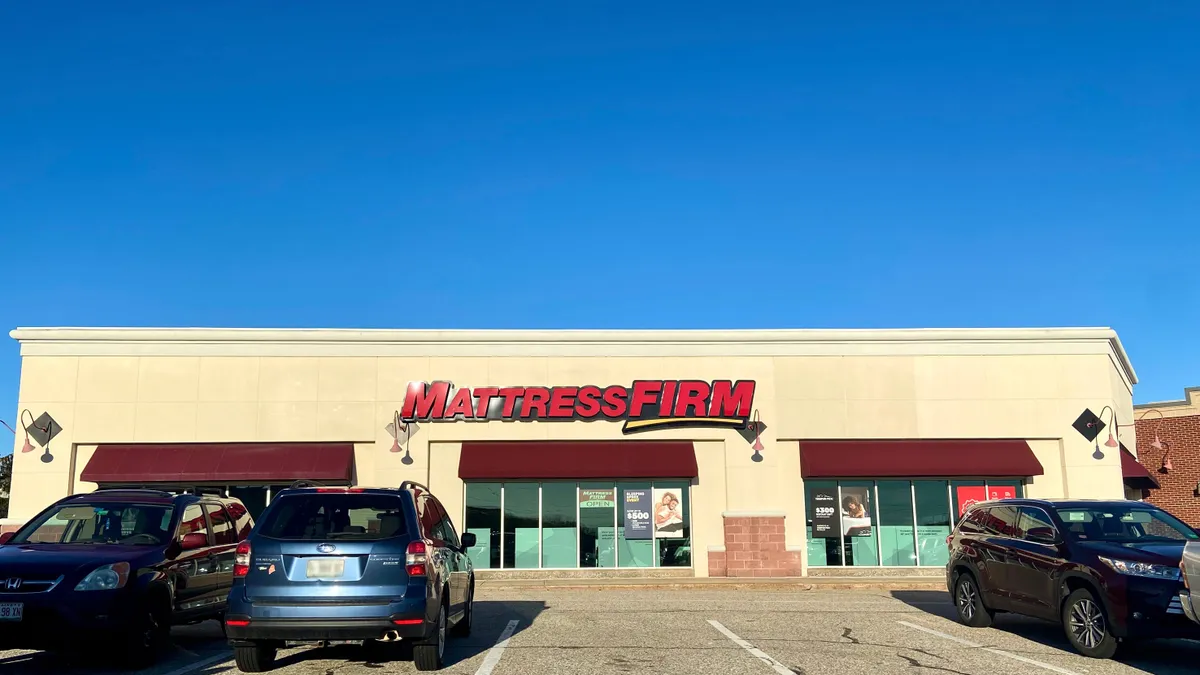Dive Brief:
-
Tempur Sealy has closed on its $5 billion acquisition of bedding retail chain Mattress Firm, the company said Wednesday. The transaction was funded by about $2.7 billion in cash on hand plus proceeds from existing borrowings and 34.2 million shares of common stock.
-
Effective Feb. 18, the company will change its name to Somnigroup International and run Tempur Sealy, Dreams and Mattress Firm as decentralized business units.
-
In the second quarter, the company expects to complete a divestiture of 73 Mattress Firm stores and the chain’s Sleep Outfitters subsidiary, which includes another 103 stores. Tempur Sealy agreed to the sale in September to assuage antitrust concerns.
Dive Insight:
This deal, first announced in 2023, has culminated more or less when Tempur Sealy executives said it would: The company last year said it expected to wrap it up in late 2024 or early 2025.
In denying the Federal Trade Commission’s request for a preliminary injunction against the takeover, a U.S. District Court judge in the Southern District of Texas paved the way in January. The FTC had argued an injunction was necessary as it proceeded with its legal challenges to the tie-up, based on concerns it would “suppress competition and raise prices for mattresses for millions of consumers.”
Under the Somnigroup umbrella, Mattress Firm and Dreams will continue to operate as multibranded retailers, while Tempur Sealy will continue to manufacture bedding for third-party retailers as well as Mattress Firm, Dreams and its own direct-to-consumer channel.
“We're glad to finish — finally finish — and move forward on this transaction and capitalize on the incredible opportunities this ... combination creates,” CEO Scott Thompson told analysts Thursday morning. “We are now the world's largest bedding company, with superior capabilities in design, manufacturing, distribution and retail, while also owning a portfolio of the most highly recognized brands in the industry.”
That means economies of scale, even as the business units operate independently, he said. The combination brings the largest mattress retail operation in the U.S. into what had been “a pure manufacturer,” making it more competitive, bringing it closer to the consumer and creating more opportunity for innovation, Thompson said.
The activity at the FTC precluded Tempur Sealy executives from seeing details like Mattress Firm’s store- or brand-level performance, but “there are some stores that need to be refreshed, and we've allocated some capital ... to freshen up the stores, to make sure that we provide our customers and our employees a working environment that is fresh, clean and crisp,” he said, adding, “It'll be data-driven.”
Mattress Firm’s bankruptcy a few years ago, when it shrank its footprint, means the retailer is stronger now, and has taken share at a time when the category has been challenged, he also said.
“If you look at the market, some of the retail competitors of Mattress Firm, some large, some small ... have not made it through this downturn,” he said. “That also should be a positive for Mattress Firm going forward as the market normalizes.”
In pro forma terms, in 2024, the company generated about $8 billion in sales, net of intercompany sales, with 85% in North America and 15% elsewhere, per its Wednesday release. About 65% of sales were through direct-to-consumer channels and 35% from third-party retailers.














